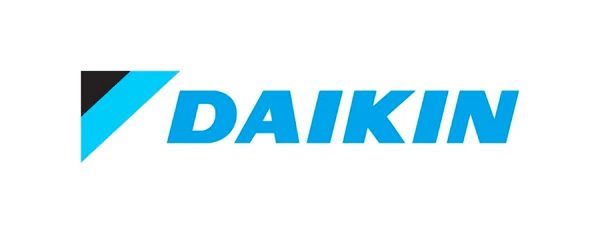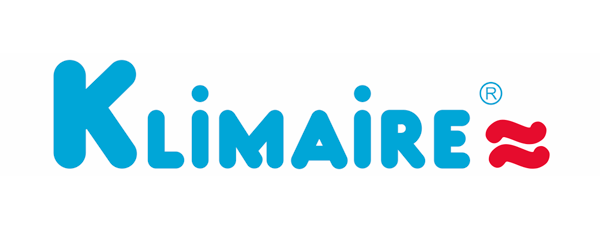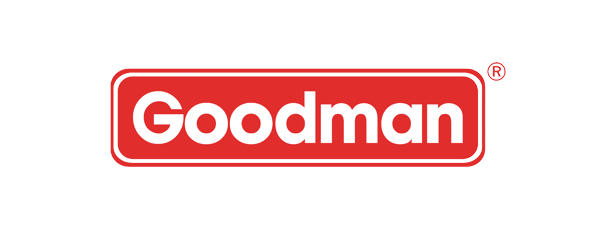Comprehensive Guide to Daikin Heat Pumps: Features, Efficiency, Tax Incentives, and Reliability
Daikin has established itself as one of the world's leading manufacturers of heating, ventilation, and air conditioning (HVAC) systems, with a century-long history of innovation in the industry. This comprehensive guide explores Daikin heat pumps, focusing on their key features, efficiency ratings, tax incentive eligibility, longevity, and after-sales support.
Key Features of Daikin Heat Pumps
Inverter Technology
Daikin heat pumps utilize advanced inverter technology, which represents a significant advancement in HVAC efficiency. Unlike conventional heat pumps that operate at either full capacity or are completely off, inverter-driven compressors can modulate their speed to precisely match the heating or cooling demand. This technology offers three major benefits:
Increased Energy Efficiency: By running at variable speeds, these systems can achieve efficiency ratings of up to 21 SEER (Seasonal Energy Efficiency Ratio), significantly reducing energy consumption.
Reduced Noise Levels: Operating at lower speeds for longer periods creates quieter operation compared to systems that frequently cycle on and off at full power.
Enhanced Humidity Control: Longer run times at lower speeds allow the system to remove more moisture from indoor air, particularly beneficial in humid climates.
Smart Controls and Connectivity
Many Daikin heat pump models are compatible with the ComfortNet smart thermostats and the Daikin One family of smart, two-way communicating home devices. These systems allow homeowners to:
- Control their heating and cooling systems remotely via smartphone
- Set up sophisticated scheduling to optimize energy use
- Receive maintenance alerts and system status updates
- Integrate with home automation systems
Cold Climate Performance
Daikin has developed heat pumps specifically designed to perform efficiently in colder climates. Their cold climate heat pumps with adaptive inverter technology can operate effectively even at temperatures as low as -25°C (-13°F). The Daikin Fit heat pump is rated to operate in temperatures as low as -20°F (-28.9°C) when properly installed.
Space-Saving Design
Daikin offers various form factors to suit different home configurations:
- Split systems with separate indoor and outdoor units
- Compact outdoor units with small footprints
- Ductless mini-split options for homes without existing ductwork
- Multi-zone systems that can heat and cool different areas independently
Efficiency Ratings and Metrics
Daikin heat pumps feature some of the industry's highest efficiency ratings, which are measured through several standardized metrics:
SEER2 (Seasonal Energy Efficiency Ratio 2)
The SEER2 rating evaluates a heat pump's cooling efficiency throughout an entire season. Daikin offers models with SEER2 ratings reaching up to 27.4, with their high-efficiency models typically ranging from 15.2 to 21 SEER2. The updated SEER2 metric provides a more accurate real-world efficiency assessment than the older SEER rating.
HSPF2 (Heating Seasonal Performance Factor 2)
HSPF2 measures heating efficiency throughout the heating season. Daikin's premium models achieve ratings up to 14.0 HSPF2, with most models exceeding the minimum Canadian requirement of 7.1 HSPF.
EER2 (Energy Efficiency Ratio 2)
EER2 evaluates the system's efficiency during steady-state operation. Daikin's systems typically feature EER2 ratings between 9.0 and 12.0, depending on the model and configuration.
COP (Coefficient of Performance)
COP indicates the ratio of heating or cooling output relative to the electrical input required. A higher COP means greater efficiency. Daikin's premium models can achieve COPs of up to 4.6, meaning they produce 4.6 units of heat for every unit of electricity consumed.
IRA Tax Incentives and Rebates for Daikin Heat Pumps
The Inflation Reduction Act (IRA) of 2022 provides significant financial incentives for homeowners who install energy-efficient heat pumps, including qualifying Daikin models.
Energy Efficient Home Improvement Tax Credit (25C)
For the 2024 tax year, qualifying Daikin heat pumps can make homeowners eligible for a tax credit equal to 30% of the installed cost, up to a maximum of $2,000. Key points include:
Eligibility Requirements for 2024: For ducted air-source split-system heat pumps, equipment must meet either:
- North and Canada Region criteria: ≥15.2 SEER2, ≥10.0 EER2, ≥8.1 HSPF2, ≥1.75 COP at 5°F, and either ≥58% capacity ratio at 17°F or ≥70% capacity ratio at 5°F
- South Region criteria: ≥15.2 SEER2, ≥11.7 EER2, and ≥7.8 HSPF2
2025 Requirements: Starting January 1, 2025, air source heat pumps must be recognized as ENERGY STAR Most Efficient to qualify, with two pathways:
- Cold climate applications (designated as ENERGY STAR Cold Climate)
- Cooling-dominated and dual-fuel applications
Claiming Process: The credit is claimed using IRS Form 5695 when filing taxes for the year the system was installed and placed in service.
Home Electrification & Appliance Rebates (HEAR)
The IRA also established the Home Electrification & Appliance Rebates program (previously called the High-Efficiency Electric Home Rebate Program), which offers additional incentives:
- Up to $8,000 in point-of-sale rebates for heat pump installations
- Additional rebates for electrical panel upgrades and other improvements
- Total cap of $14,000 for all efficiency upgrades per household
This program is targeted at low and moderate-income households:
- Low-income households (below 80% of Area Median Income) can receive rebates covering 100% of project costs
- Moderate-income households (80-150% of AMI) can receive rebates covering 50% of project costs
These rebates are administered by individual states, and availability varies. Unlike tax credits, these rebates reduce the purchase price at the point of sale.
Important Considerations
- The 25C tax credit and HEAR rebates cannot be combined for the same installation
- Tax credits can be claimed annually for qualifying equipment through 2032
- Beginning in 2025, manufacturers will need to provide a PIN or QM code for eligible products to be used on tax returns
Longevity and Reliability
Daikin heat pumps are engineered for durability and longevity, with several factors contributing to their reliability:
Build Quality and Components
Daikin heat pumps incorporate several features that enhance longevity:
- All-aluminum evaporator coils that reduce the likelihood of corrosion
- Refrigeration-grade premium copper tubing
- Heavy-gauge galvanized steel enclosures
- High-density compressor sound control blankets that protect internal components
- High-efficiency ECM fan motors that reduce wear and tear
Expected Lifespan
With proper installation and regular maintenance, Daikin heat pumps typically last 15-20 years. Factors that influence lifespan include:
- Installation quality
- Regular professional maintenance
- Local climate conditions
- Usage patterns
- Proper sizing for the home
Diagnostic and Monitoring Systems
Many Daikin systems include "Daikin Inside Intelligence," a sophisticated diagnostic system that constantly monitors the heat pump's performance. This allows for early detection of potential issues before they cause system failure, helping to extend the system's operational life.
Warranty Coverage and After-Sales Support
Daikin backs its heat pumps with comprehensive warranty protection:
Standard Warranty Coverage
In the United States, Daikin offers tiered warranty protection for residential heat pumps:
- 12-year parts limited warranty on all heat pump models
- 12-year or 6-year unit replacement limited warranty on select models (applies specifically to compressor failures)
To receive the full warranty benefits, online registration is typically required within 60 days of installation (except in California, Florida, and Quebec).
Extended Warranty Options
Daikin offers the Asure Extended Service Plan that provides additional protection:
- Options for 6-year or 12-year coverage periods
- Coverage for both replacement parts and labor expenses
- Service provided by Authorized Asure Dealers
- Protection against unexpected repair costs
In some regions, Daikin offers additional warranty extensions for systems installed by certified Daikin Sustainable Home Installers or Experts.
Customer Support
Daikin maintains a comprehensive after-sales support infrastructure:
- Customer service hotline: 1-866-588-6454
- Network of trained and certified dealers throughout North America
- Technical support department for contractors and installers
- Troubleshooting resources available on the Daikin website
Conclusion
Daikin heat pumps represent a significant investment in home comfort and energy efficiency. With advanced features like inverter technology, cold climate performance capabilities, and smart connectivity, they offer considerable advantages over conventional heating and cooling systems. The availability of substantial tax incentives through the Inflation Reduction Act makes 2024-2025 an opportune time to consider upgrading to a Daikin heat pump system.
Their comprehensive warranty coverage and established after-sales support network provide peace of mind, while the focus on durability and reliability helps ensure long-term value. For homeowners looking to reduce their energy consumption, carbon footprint, and long-term operating costs, Daikin heat pumps represent a technology-forward solution backed by a century of HVAC innovation.
When considering a Daikin heat pump, it's advisable to consult with a certified Daikin dealer who can assess your specific home requirements, recommend the appropriate model and size, and ensure proper installation to maximize efficiency and longevity.
Footer
This article was last updated on May 20, 2025
The information provided in this article is for educational purposes only and does not constitute professional advice. Tax credit and rebate information is subject to change based on government regulations and programs. Always consult with a tax professional regarding eligibility for tax incentives and a certified HVAC contractor for specific installation requirements and recommendations for your home.


